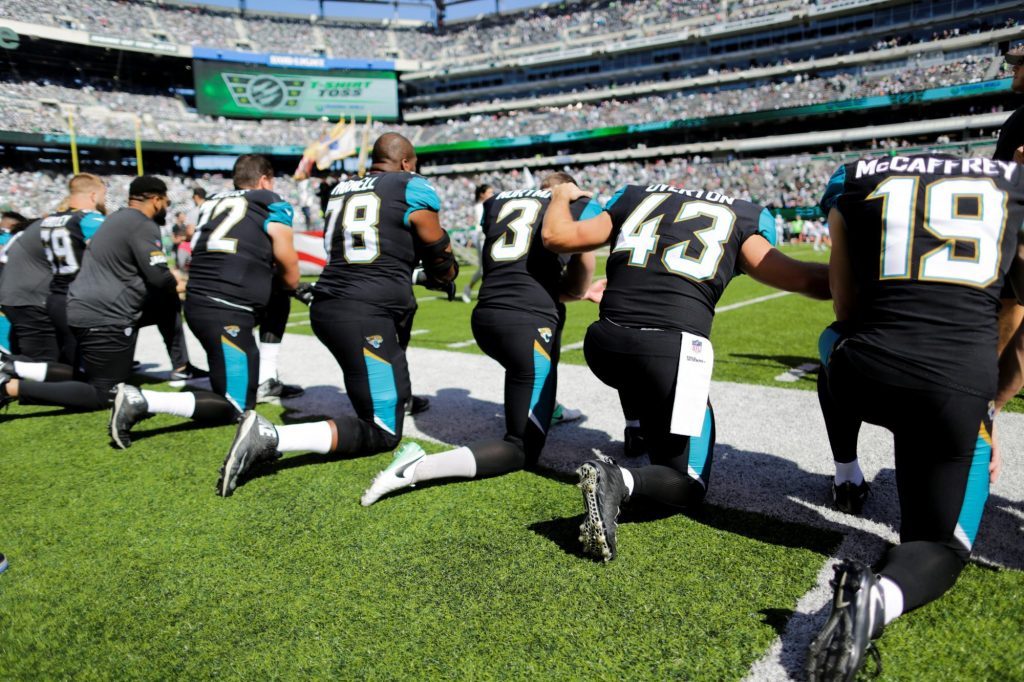[ad_1]
In America, there is a significant kind of public insistence that their “freedom” is fundamentally linked to their wealth.
Much of the country sees America through an aspirational and transformative lens, a colorblind and unbiased utopia, where wealth conveys equality and acts as a panacea for social and racial ills. When an individual achieves massive financial success, or so the message goes, he will “transcend” the scourge of economic and racial inequality, becoming truly “free.”
Working in parallel with this reverence for this colorblind version of the “American Dream” is the belief that economic privilege sends patriotic gratitude. Across industries and disciplines, Americans are told to love their nation without criticism, to be grateful that they are exceptional enough to live in a country that allows its citizens the opportunity to reach astronomical heights of economic prosperity.
For the nation’s black citizens, there is often an additional racial presumption that lurks beneath the surface of these concepts: the notion that black success and wealth requires public silence about systemic problems of inequality and oppression.
These are durable and fragile ideologies that support the concept of the American Dream – durable because they are encoded in the very fabric of American culture (most Americans, including African Americans, have readily embraced these ideologies as assumed facts); but fragile because it is too easy to see that their economic privilege is a bad barrier against both individual and systemic discrimination and oppression.
Consequently, blacks have also been among the most vocal challengers to these ideologies, as we have seen most recently with the Colin Kaepernick and NFL #TakeAKnee demonstrations. In a show of solidarity with the free agent quarterback, professional football players — most of whom are black — have been kneeling during the National Anthem to protest racial injustice and police brutality.
WATCH: NFL players unite in defiance and solidarity
In recent weeks, the President of the United States has brought new attention to the inherent tensions that define the ideology of the “American Dream” through his repeated public criticisms of these kneeling NFL players.
“If a player wants the privilege of making millions of dollars in the NFL, or other leagues,” Trump tweeted recently, he should not be allowed to kneel. Labeling the actions of the protesters “disrespectful” to the country, the flag and the anthem, President Donald Trump called for the firing of the players, encouraged a boycott of the NFL, insisted that the league pass a rule requiring to the players to support the anthem and mocked the protesters as “sons of whores”.
In a dramatic ploy better suited to a scripted reality television show, the president gloated that he had ordered Vice President Mike Pence out of an Indianapolis Colts game as every player took a knee. This was an orchestrated show of power and outrage, designed to send a flamboyant political message, given that Trump and Pence knew in advance that on that particular day, the Colts were playing the San Francisco 49ers — the team that currently has the most protesters. The NFL’s announcement this week that the league has no plans to penalize players who protest is the latest event to provoke the president’s ire; Taking to social media earlier this morning, he also equated kneeling with “total disrespect” for our country.
As many have noted, the president’s moralizing outrage toward NFL players is selective and deeply flawed — his apparent patriotic loyalty hasn’t stopped the billionaire politician from criticizing the removal of Confederate statues, or attacking a Gold Star family, or prank of Sen. John McCain’s military service.
NFL players and their defenders have repeatedly stated that the protests are meant to highlight racial inequality and oppression. They also explained that their decision to kneel arose from a desire to protest peacefully and respectfully after a sustained conversation with military veterans.
Trump chose to ignore these reasons and the structural problems of inequality that motivate the protests and instead advance a narrative exclusively concerned with obvious manifestations of American patriotism and the “privilege” of NFL players. As one of the president’s advisers explained, aggressively targeting NFL players, Trump believes that he is “winning the culture war”, having made “black millionaire sports athletes his new (Hillary Clinton)”.
READ MORE: As ‘America’s sport’, the NFL cannot escape politics
It is a cynical statement, which reveals the president’s perception of the jingoism of his base of supporters who imagine him as a crusader for American values and symbols.
By making black protesters the antithesis of all this, Trump branded the players as unpatriotic elites and enemies of the nation. For a president who has consistently navigated domestic and foreign policy since he was elected, a culture war between “working” and “virtuous” middle-class white Americans and whites Americans and rich, ungrateful black football players are a welcome public distraction.
Trump’s attacks on NFL protesters are rooted in those competing tensions inherent in the American Dream: that wealth equals freedom; that economic privilege demands patriotic gratitude; and more importantly, that individual black economic prosperity invalidates their concerns about systemic injustice and demands their silence about racial oppression.
Among detractors of the protesters, this has become a common line of attack, a means of disparaging the activism of black NFL players by pointing to their apparent wealth. The fact that systemic racism is demonstrably real and that individual prosperity does not make one immune to racial discrimination seems to be lost on the protesters’ critics.
His is a complaint that suggests black athletes should be grateful to live in this country; that racism cannot exist in America since black professional athletes are allowed to play and sign contracts for considerable amounts of money; that black players owe the nation their silence since America “gave” them opportunities and access; that black athletes have no moral authority on issues of race and inequality because of their individual success; and that the success of black athletes was never theirs to earn, but instead, it was given to them and can easily be taken away.
This culture war being waged on black athletes is not new. Black athletes — and entertainers — have long been hyper-aware of their peculiar place in American society as individuals beloved for their athletic and artistic talents, but they’re insulted the moment they use their public platform to protest. systemic racial inequality. The parallels between the #TakeAKnee protests and the protests of Muhammad Ali or Juan Carlos and Tommy Smith are readily apparent; so there are many important similarities to the case of Paul Robeson.
A civil rights activist, college and professional football player, attorney, opera singer, and actor, Robeson had his passport revoked in 1950 because of his political activism and speech—actions that all , but destroyed his career. The star athlete and entertainer, “who had exemplified American upward mobility” quickly became “public enemy number one” as institutions canceled his concerts, the public called for his death and anti-Robeson mobs they burned effigies of him.
During a 1956 congressional hearing, the chairman of the House Committee on Un-American Activities struck a familiar refrain with Robeson, challenging charges of entertaining American racism and racial oppression. . He saw no sign of bias, he argued, since Robeson was privileged, having gone to elite universities and played college and professional football.
READ MORE: Poll: Americans are divided on NFL protests
Black athletes, even the silent ones, widely understand that their economic privilege does not insulate them from the reality of racial discrimination. They also understand that their wealth and success is precarious and often depends not only on their athletic performance, but also on them remaining silent on issues of racial injustice, especially those that seem to question the “American Dream” or involve the associated American public.
It should come as no surprise that Colin Kaepernick, whose protests have turned him into a national pariah despite his talents on the field, has filed a lawsuit against the NFL, accusing the league and its teams of blackballing because of his political beliefs. . “Peaceful political protest,” Kaepernick’s lawyers argued in a statement, “should not be punished and athletes should not be denied employment based on partisan political provocation by the Executive Branch of the our government.” Whether the ostracized Kaepernick will win his complaint is unknown, but it is certainly telling that he and his lawyers have rooted their claims in contested definitions of freedom and the precarious economic privilege of French NFL players.
For the strongest and most vocal critics of the black protesters, in particular, the experience is equivalent to treason, grounds for the harshest of punishments. Perhaps they would have benefited from a close reading of James Baldwin, who once argued: “I love America more than any other country in this world, and, precisely for this reason, I insist on the right to criticize perpetually.”



